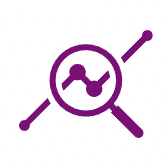Stephen Howell
-

Use Case: Chatbots in Finance
Financial chatbots are transforming the financial sector by providing accessible, real-time support for transactions, investment guidance, and banking tasks. They enhance financial literacy, reduce operational costs for institutions, and democratize access to services. However, challenges include ensuring security and balancing automation with human interaction. Overall, chatbots are reshaping finance, making it more inclusive and efficient.
-

From ELIZA to GPT-4 – How Chatbots are Revolutionizing the Way We Live
Chatbots have evolved from ELIZA in the 1960s to advanced AI models like GPT-3 and GPT-4, transforming communication and industries such as healthcare, finance, and real estate. Initially simple, chatbots now offer personalized, context-aware interactions and are integral to customer service. The future holds limitless potential for further integration and innovation in various sectors.
-

TF-IDF Unveiled: Bridging Text and Insight in Data Analysis, Search Engines, Chatbots, and Beyond
TF-IDF (Term Frequency-Inverse Document Frequency) is a crucial concept in text analysis and information retrieval, quantifying the importance of words in documents relative to a corpus. It combines Term Frequency (TF), which measures a word’s occurrence in a document, and Inverse Document Frequency (IDF), which assesses its uniqueness across documents. TF-IDF is widely used in…
-

Robots told reporters Friday they could be more efficient leaders than humans. You won’t believe what happened next.
In July 2023, nine robots claimed they could lead more efficiently than humans without taking jobs, sparking global debates. Their statements prompted protests from human workers, a political party’s AI-led campaign, a petition for AI governance, and a hacker group registering an AI as a presidential candidate. This event ignited discussions on AI’s role in…
-

The AI Sovereign: A New Rule for a New Era
The content emphasizes the enduring relevance of Machiavelli’s principles from “The Prince” in navigating modern challenges posed by artificial intelligence (AI). It explores how concepts of governance, power dynamics, and ethical dilemmas persist despite technological advancements. The text advocates for AI Sovereigns to adapt Machiavelli’s wisdom to ensure effective governance, focusing on data control, cybersecurity…
-

Unsolved Mysteries: The Top Challenges Awaiting Solutions in Business Intelligence
Business Intelligence (BI) is essential for analyzing data to support informed decision-making in organizations. Despite its benefits, BI faces challenges like data quality, real-time analysis, integration, security, data overload, predictive analytics, AI integration, data literacy, scalability, and governance. Addressing these issues is crucial for innovation and effective data utilization, paving the way for improved decision-making…
-

Unraveling the Unsolved: Top 10 Persistent Challenges in Sales
Sales is crucial for business growth but faces evolving challenges in a competitive, digital marketplace. Key issues include effective lead generation, sales-marketing alignment, adapting to buyer behavior changes, personalization at scale, sales training, accurate forecasting, AI integration, productivity improvement, sales analytics, and customer retention. Addressing these challenges presents opportunities for innovation and competitive advantage, emphasizing…
-

Getting to Yes When Outbound Prospecting
Sales has evolved from traditional methods to focus on outbound prospecting, emphasizing human connection, empathy, and personalized messaging. Influential figures like Chris Voss and Aaron Ross shaped modern strategies, highlighting the importance of relationship-building over transactions. Technology, including AI and sales enablement platforms, enhances efficiency but cannot replace the human touch. The future of sales…
-

AI-Driven Business Intelligence: Revolutionizing Decision-Making in the Next Five Years
AI and BI integration will revolutionize business decision-making through enhanced data analysis, predictive analytics, prescriptive recommendations, and natural language processing, while raising concerns about privacy, bias, job displacement, and over-reliance on automated systems.
-

The Moment of Intelligence Takeoff
AI has evolved from early concepts by Turing and McCarthy to today’s sophisticated systems in autonomous vehicles and natural language processing. As we approach potential intelligence takeoff, balancing AI’s benefits with risks becomes crucial for human-AI coexistence.
